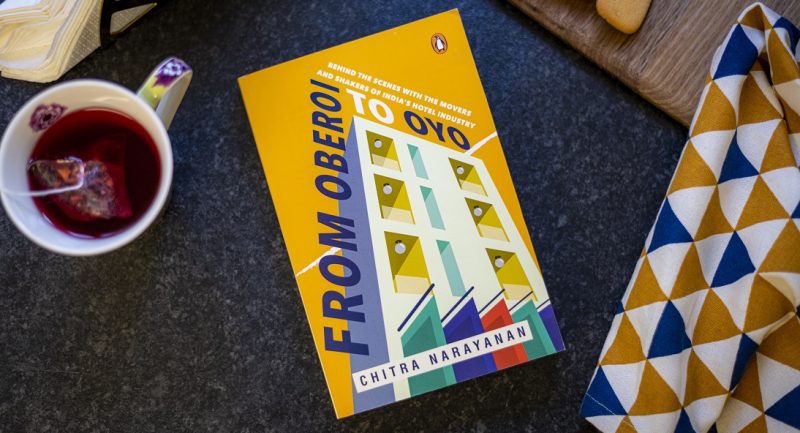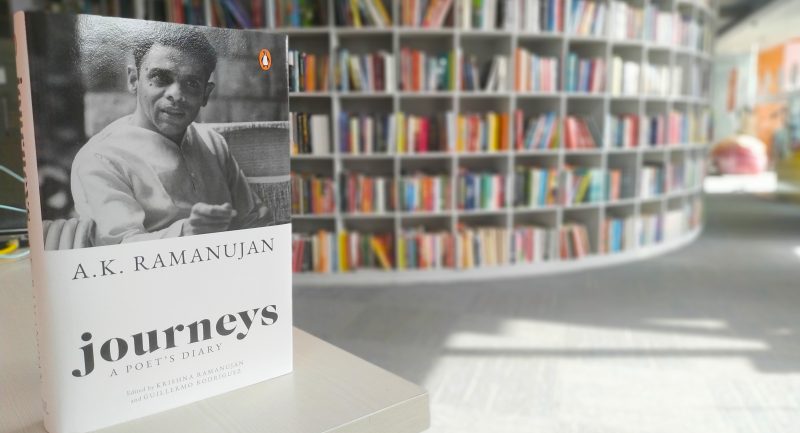
Acid by Sangeetha Sreenivasan is a gripping and powerful story about two women and their journeys of discovering their lives and the struggles that come with it. Kamala and Shaly, pose as two distinctive women living in an unusual household. Kamala’s twins, from her former marriage, take care of each other and are a part of the same household. The characters in the book make for a dynamic storyline as the plot is driven by their spirited characters.
Here, Sangeetha Sreenivasan, talks about the psychological and behavioral anatomy of her characters and her road to a final realization of the mould of her characters in the book. Dwelling in the deep crevices of the psyche of women, sexuality, and a unique understanding of relationships, Sreenivasan also explains as to what drove her to write this book, which highlights a quintessential meaning of womanhood and places it in the current state of the world.
—————————-
Imaginary as they are, I first came into contact with my characters in the year 2007. Extending in curves and turns, instantly I was allowed to participate in their private lives—their kinesics, their voices and tacit manners, their odors, and their screaming meemies. “A dark and private weather settled down on everything,” to borrow a line from Mark Strand. In a certain sense they started interfering with the course of my regular life. I found myself in a world that really has been turned on its head.
Before they started blurring my mind there was a sort of emptiness within me which I wanted to flush out. I started writing the story of Kamala. But the emptiness I mentioned was not separable from the idleness which was stronger and kept reminding me of the banality of the improbable relationships I wanted to work on. I quit writing at this stage even though I had an offer from a publisher. Years later when I wanted to write a second novel in Malayalam the book in the slush pile came to my mind. There was no literature or no music in it but there was this skeleton I knew would help me work. For me, writing Acid was a nerve-racking business of tampering my inner self with the everydayness I rarely got along with on a daily basis. What I wanted for writing was absolute silence and an exaggerated mindscape where I could find myself emotionally unsettled and strangely lost, where it was easy to toy with certain uncertain situations. I spent three or four intensive months on writing this piece. In the end I sobbed, but like a small wonder that happens once in a while, the emptiness didn’t return.
I am a listener (not always) and definitely not a judge. I don’t believe in judging people, particularly the fictitious ones. Everything is connected here in the inextricably complex and intricate meshes of the Universe. Everything emerges out of chaos and individual existence is fragile like a bubble on the surface of water. Who are we to judge or decide? I don’t care about people’s sexual preferences as long as they do not hurt or harm another living being. It was not my aim to shock the readers by writing a story on homosexuality. I think it is time we forget the divisions. We do not call Manon Lescaut a heterosexual novel though it is one of the most enigmatic and challenging love stories that happened between a man and an amoral courtesan. We call Call Me by Your Name a gay story even though the intention of André Aciman was to depict the intimate bond between two individuals. It is time we accept sexuality in its multiplicity and stop attributing titles and divisions, it is time we stop seeing the strangeness of relationships in the name of sex. I don’t care if a woman loves a man or a woman or a man loves many as in the monogatari of the ‘Shining Prince’.
I remember the story ‘The End of the Party’ by Graham Greene and the way I got carried away after reading it. I couldn’t find a way out of the intense inner worlds of the identical twins and maybe that is the reason why the twins stayed in my mind longer than what the characters in a short story demanded of its reader forcing me to unravel the psycho-behavioral patterns of the twins and pondering over creating fictitious twins of my own. As a reader I always have this kind of troublesome connections with the books I love dearly. My writing is just an extension of what I had read so far, twice or thrice removed from the original text, a faint recreation or an imitation in its weakest form. I was never a detached reader; I applied emotions and shunned my intelligence and ended up an imbecile ready to get carried away at a mere beckoning. The issue of copyright and plagiarism is a different story. I think the books I have read and loved are mine, my books, my words, my worlds—this totally private joy; reading becomes an extended conversation. As Yiyun Li says “To read is to be with people who, unlike those around one, do not notice one’s existence.”
The woman in my story is also an amalgamation of all the women I have loved so far. I believe the strength of a woman lies in her delicate curves and powerful sexuality. I always cherish the images of beautiful women/nymphs from the epics and wanted to create a woman as tender and sexually enticing as one of those magnificent creatures we come across in literature. But when the sexuality of such a powerful being remains unanswered everything turns upside down demanding total devastation. I named her Kamala; the lotus flower, graceful yet susceptible. I gave her twins; I made her marry her brother; I made her long for the same sex; I gave her burdens of every kind; I even placed her in a society that has still not come to terms with accepting or appreciating the power of sexuality. I wanted her to scale the ill-fated mountain.
My associations with the lovely self-taught women from North Eastern regions of India enabled me to experience the cultural differences helping me to develop the character of Shaly. The graveyard I had described in the book is a place I had visited more than a couple of times and its premises are far more beautiful than described in the book. All these were ingredients or separate entities designed to float on the surface of a lotus leaf, the disoriented heroine of my book. The leaf of the lotus absorbs nothing, invites nothing into its inner sanctum. Those who move on the surface may sometimes fall down losing grip. This was the idea around which I started working initially. I wanted to see the beautiful leaf torn and shattered and I worked for the accomplishment of the most probable devastation possible.
Acid is not so much of a story on homosexuality and I don’t consider myself presumptuous in writing on same-sex relationships or psychedelic ups and downs as my book was not meant to shock the reader. But it pains me to think that the society has not come to terms with homosexuality even today. This is indeed a lamentable situation.
—————————-
Acid unravels the secrets that lurk beneath the surface of our lives, and marks the entry of a searing new voice in the Indian literary landscape.
AVAILABLE NOW









